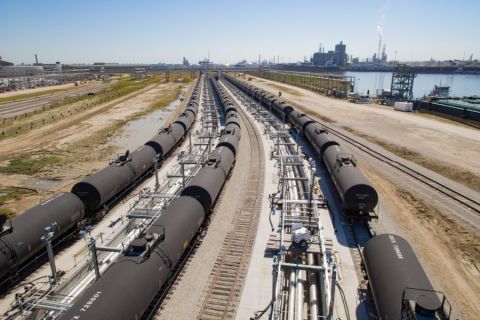
When it comes to debt, oil and gas companies are in a better position than a lot of other U.S. industries, but the decisions energy executives make on lowering their liabilities has remained a contentious issue for years, and especially since the beginning of 2023.
A July report released by Moody’s Investors Services on the overall U.S. economy showed that most of the large companies in the S&P 500 finished 2022 with plenty of money, but not as much from the year before. The overall amount of corporate cash fell by 12% to $2 trillion, but the share of debt remained flat from 2021.
Instead of paying off debt, U.S. companies put much of the money into share repurchases, which rose by 31% while dividend payments were up by 12%, according to Moody’s. Capex also rose by 18%.
The moves have caused some concern among analysts and criticism from people—largely politicians—who believe the money could be better spent.
The economy has been dragging, and monetary supplies are drying up. At its latest meeting in July, a majority of the Federal Reserve Bank agreed to prioritize reducing inflation, driving up the cost of borrowing money.
For the short-term gain of higher stock prices, critics say that the companies are risking their long-term access to a fluid supply of cash.
Companies announced, overall, a new record of $1.22 trillion in buybacks in 2022. Bank of America analysts predict the record will be broken again this year.
The oil and gas industry’s major players have bucked the overall trend of flattened debt levels, but that hasn’t shielded the industry from some intense criticism, including from Democratic members of Congress.
And for the nation at large, the issue of share repurchases in the oil and gas industry has sometimes been at the forefront of the discussion about buybacks for the entire economy.
Buybacks became a hot political topic in 2022. U.S. House Oversight Chairwoman Carolyn Maloney and Rep. Ro Khanna, chair of the environment subcommittee wrote a letter to the CEOs of Exxon Mobil, Chevron, BP and Shell to stop stock buybacks and dividends and shift cash towards lowering prices at the gas pump.
In his January State of the Union address, President Joe Biden proposed quadrupling the current excise tax on buybacks to 4% from 1% and specifically called out the oil and gas industry. (The 1% tax was part of the Inflation Reduction Act signed into law by Biden in 2022.)
“Big Oil … invested too little of [their] profit to increase production and keep gas prices down. Instead, they used those record profits to buy back their own stock, rewarding their CEOs and shareholders,” said Biden, who accused the firms of “war profiteering.”
Energy companies responded that Biden was giving a slanted version of how buybacks are used. Biden’s proposal later received criticism from both sides in Congress and has not been approved.
Buybacks: pro and con
A company performs a stock buyback by purchasing its own shares off the market. By reducing the number of available shares, the earning potential of the remaining stocks are increased.
Industry supporters say buybacks are an important tool and can be used to keep prices steady, while benefitting their shareholders
Critics see buybacks as a tool for greed, wielded by wealthy executives to manipulate the stock price and drive cash into their own accounts instead of spending money on their employees, facilities or customer services. Funds are removed from the marketplace that will be needed for the next recession, or that could pay off the debt that can leave companies in a vulnerable position.
Ukraine and surplus demand
The oil and gas industry, however, managed to reduce its debt over the same time frame as Moody’s study. While other industries were recovering from COVID-19 in 2021, Russia opened up a huge hole in the supply of oil when it invaded Ukraine. The ensuing international sanctions left a huge hole in the market, and U.S. suppliers especially stepped up production to meet increased demand in Europe.
Many U.S. oil and gas players reported record earnings in 2022 and responded with major buyback announcements at the beginning of 2023.
Chevron announced a $75 billion multi-year share buyback in January. In its beginning-of-the-year earnings report, Exxon stated it had spent $15.2 billion to acquire stock in 2022. In 2021, the company had spent only $155 million on repurchases. Exxon executives authorized another $35 billion in buybacks for 2023 and 2024.
Yet, both companies also made major reductions in long-term debt.
Since 2020, Exxon’s long-term debt has fallen from $45.7 billion to $37.6 billion, according to its most recent earnings report. Chevron’s debt fell by more than 50%, to $20.2 billion. Other major players, such as Shell and Valero, also reduced their debt and announced major buybacks.
Midstream companies followed the same path, though with smaller margins. Energy Transfer saw its long-term debt fall from $51.4 billion to $44.6 billion. Kinder Morgan’s long-term debt fell by $3.1 billion to $28.9 billion.
Midstream giant Equitrans was the odd one out. The company’s debt rose by $20 million over the same time period as executives worked to complete the highly litigated Mountain Valley Pipeline project in West Virginia and Virginia.
Falling commodities, steady buybacks
For the past year, oil and gas companies have been hit by declining earnings across the board as commodities—particularly natural gas—have fallen from lofty highs seen in 2022. The decline in the cost of oil, however, has not resulted in cheaper prices at the pump. While the cost of a tank of gas fluctuates depending on factors like the weather or technical difficulties at the refineries, energy industry leaders have also been content to avoid the large-scale capital spending needed to drive the price down over time.
In Europe, Shell, TotalEnergies and Repsol announced total buybacks of almost $6 billion at the end of the second quarter, despite posting an average decline in adjusted net income of more than half. Analysts saw the move as a sign the industry will continue to prioritize rewarding investors as markets normalize after the supply difficulties of 2022.
Many E&Ps remain sensitive to the boom and busts of the mid-2010s—which drove investors away—and are committed to keep their finances as steady as possible, one analyst said.
“After a near-death experience for the industry in 2014 to 2016, the oil and gas industry has been focused on financial discipline and improving return on invested capital and other financial metrics,” Michael Underhill, CIO/CEO of Capital Innovations, wrote in a statement.
“Capital spending surged in the years leading up to 2014, with a total disregard to the return on investment that those levels of capital spending (were) generating. Production growth was the focus of Wall Street and by default of oil-gas senior management, with incentive compensation reflecting that growth at any cost priority,” Underhill said. “The oil-gas industry was destroying shareholder value with every dollar they spent. Wall Street finally realized this and penalized companies that were eroding shareholder value with low relative equity valuations.”
Since then, capital spending has decreased by about 40% from peak levels and return on invested capital has improved greatly, Underhill said.
Debt is just one of several factors driving the economic decisions of oil company executives.
“Companies should back off from paying off too much debt. There is an optimal level of financial leverage that makes sense for each company, so it is not an either/or decision of debt paydown versus share repurchase and dividends,” Underhill said. “Excess funds beyond that are being directed to more obvious shareholder friendly actions such as share repurchase and growth of the dividend, again there is a return on those strategies and an optimal amount of each.”
Recommended Reading
Targa to Proceed with Permian Basin Apex Pipeline After All
2024-05-02 - Targa Resources expects to take a final investment decision for the Apex pipeline out of the Permian Basin before the end of the year.
US Appeals Court Upholds FERC Approvals for Gas Pipeline Expansion
2024-05-02 - A unanimous three-judge panel of the U.S. Circuit Court of Appeals for the D.C. Circuit held that the Federal Energy Regulatory Commission was right to determine the Evangeline Pass Expansion project is functionally separate from four related gas infrastructure developments.
Enterprise Targets FID for SPOT Project by End of 2024
2024-05-01 - Enterprise Products Partners’ co-CEO disputed capex figures reported in the media regarding its Sea Port Oil Export Terminal.
US Reforms Green Law to Speed Clean Energy, Infrastructure Permits
2024-04-30 - The reforms are the second and final phase of adjustments to the National Environmental Policy Act, or NEPA, by the Biden administration.
Canadian Railway Companies Brace for Strike
2024-04-25 - A service disruption caused by a strike in May could delay freight deliveries of petrochemicals.



